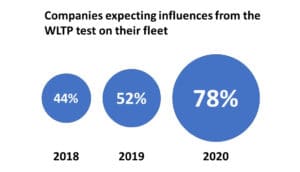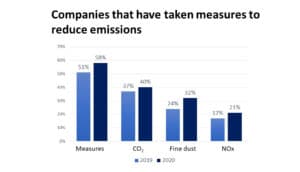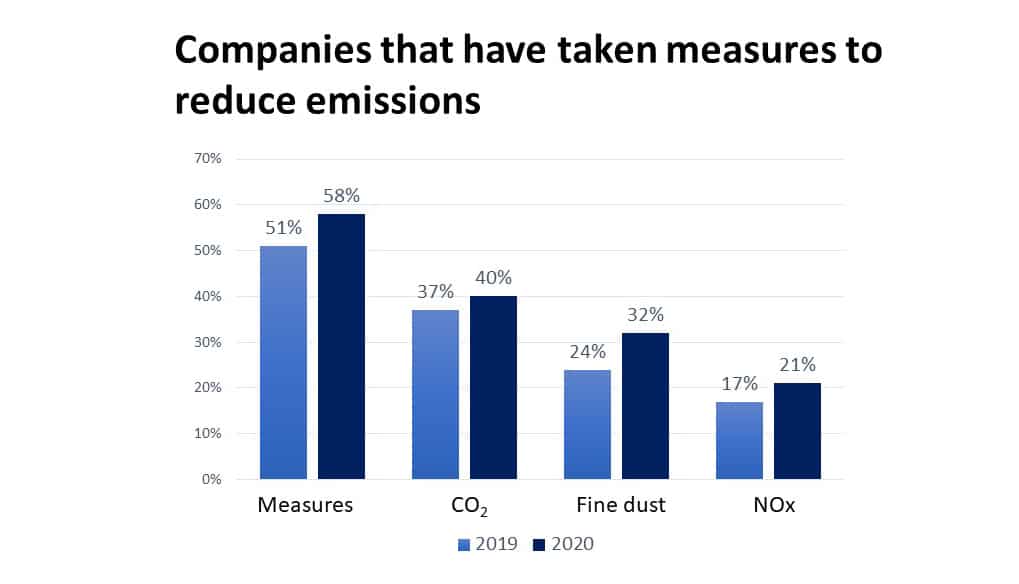The increasing and visible climate change has prompted many companies to take measures to reduce emissions. Influenced by new requirements such as WLTP, but also by the initiative of many fleet managers, something has also moved in the company fleets.
A good three years ago, standard 6c replaced the previous NEDC (New European Driving Cycle) measurement procedure – in which exhaust gas values were determined under laboratory conditions – with the more stringent WLTP (Worldwide Harmonized Light-Duty Vehicles Test Procedure) test bench measurement procedure. At the same time, the RDE (Real Driving Emissions) cycle was used to measure exhaust emissions for new models. Testing in real-world conditions is intended to ensure compliance with the standards on the road as well. In addition, the effects of special equipment and driving situations are taken into account in the measurement.

These new measurement methods have had a strong impact on company fleets. While 44% of all Swiss companies in the arval fleet barometer 2018 – large companies were already at 62% at that time – stated that the new WLTP test would have an impact on their fleet, 78% are already affected today.
More and more reduce emissions
Many companies have taken measures to reduce emissions in their fleet since the change in the test procedure. For example, this figure rose from 51% in 2019 to 58% in 2020. It is interesting to note that most companies pay attention to the CO2 emissions of their company vehicles. This is because: concrete CO2 specifications (carbon dioxide) do not exist even for Euro 6 with its subcategories. There is only a target value for the entire fleet of an automobile manufacturer, which is limited to 95 g/km from 2021.

From January 1, 2021, new Euro 6d standard for new registrations
At the beginning of the year, the new type approval Euro 6d also comes into force for all new registrations. For Swiss, this applies to new vehicles with 1.1.2021 as the date of the customs stamp when importing into Switzerland. Only new cars with this exhaust emission standard may then also be imported.
In addition, FCM (“Fuel Consumption Monitoring”) will become mandatory for all newly registered cars: all real fuel and energy consumption during the entire driving operation must be stored by the vehicle. They can then be read out via the diagnostic interface. The aim is to be able to detect further deviations between test bench measurements and real emissions or consumption.
What impact will the Euro 6d standard have?
In addition to the general import restriction for new cars, the Euro standard comes into play above all when driving abroad: many European cities have already had environmental zones for some time, which may only be entered with the so-called “environmental badges” – in France Crit’Air Vignette (“certificat qualité de l’air”). Recently, more and more drive-through restrictions have also been imposed on certain streets or parts of the city. Failure to comply will result in traffic fines.
Data source: arval fleet barometer 2018 – 2020





